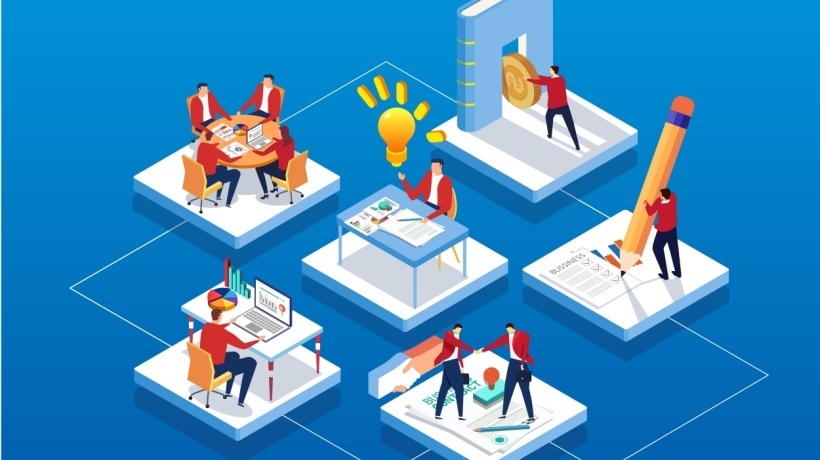You Don't Need To Change Habits To Find Knowledge
Ever wondered how much time you spend searching for information at work? The number would probably be pretty shocking. But what if I told you that cutting back on that time could make you happier and more productive?
1. It Matches Your Everyday Habits And Meets You Where You Work
When you need to know something, you just Google the answers at that moment, right? We all do things this way in our personal lives, so why are we so often wedded to the traditional method of learning at work?
I mean, if I’m planning to cook a pasta dish, then I’m not going to stop, sign up for an Italian cookery course and wait till that’s over before I make it. I’ll be ravenous by that point, and the moment will be gone—I might even fancy a roast dinner by that point. And yet, that’s still how so many people approach learning a new skill at work, they sign up for a course and set aside time to take on the modules.
But when was the last time you had that much free time at work? Research by Josh Bersin reports that on average we spend less than 25 minutes each week slowing down and learning, which isn’t even 1% of our working week. So, how much do you think you’ll learn in two quarters of basketball every week? The final nail in the traditional coffin is that we haven’t even factored in the time spent applying that at work once you’re done.
That all sounds a bit too disjointed to be effective, and it’s why learning in the flow of work is so beneficial. In the same way, we’d look for those ingredients, we’d access a knowledge base of all our relevant work resources and search through them in our moments of need. Not only is that the moment that it’s most useful, it’s when we’re most motivated to learn. When you throw in the fact that we don’t need to disrupt our existing habits, that’s a recipe for success.
2. You’ll Gain Back Time And Become More Productive
Five minutes searching here, a 10-minute look there, a call to ask a colleague a question, firing off an inquisitive email—have you ever wondered just how much of your week you spend searching for information? I hope you’re sitting down because it’s 25% for the average person!
This is not a new phenomenon either. In 2012, people spent 1.8 hours per day searching and that rose to 2.5 in 2015 before falling to around the two-hour mark in 2019. That’s no small change when it comes to being productive at work. You add in trips to the kitchen and a chat with a colleague, when are we going to get any work done?
Joking aside, one of the key components of learning effectively in the flow of work is having a central source for your information. It means that when you encounter a hurdle during the day, you can quickly search for what you need and use that as your springboard to hop over it. Say you’re in the sales team and a customer asks for pricing information on an unfamiliar product. When you can just search for the price list, you’re ensuring a quick and accurate response without needing to ask a colleague or wait for their reply.
Over time you’ll save time too, which you can invest in other tasks and become a more productive part of the team. It’s been estimated that having that one knowledge base for resources can cut back search time by up to 35%. Plus, when you’re doing all that at work and increasing your output, that makes you more content. Which leads us nicely onto how it makes you happier.
P.S. These statistics came from a fair few sources, and because I don’t want to disrupt your flow (see what I did there), I’ve linked to an earlier round-up I wrote, where you’ll find links to everything.
3. It’ll Make You More Engaged And Happier At Work
This is a two-pronged point: the two previous steps help you feel more content, but the act of learning itself does too. It makes sense that if we’re doing better at work, we’ll be happier. But the more we keep learning, the better our options for development and career progression become. Time is often the biggest barrier to this, but we know workflow learning helps us smash through that. So, we can then focus on the skills we need to level up and improving our path to progression, which 76% of employees said they value most.
There’s a fantastic quote from Josh Bersin’s research summary on this topic that sums up the impact of learning at work. If I tried to paraphrase it then I’d do it a disservice, so here it is in full to round off this article:
In the research we just completed, we found that employees who spend time at work learning are 47% less likely to be stressed, 39% more likely to feel productive and successful, 23% more ready to take on additional responsibilities, and 21% more likely to feel confident and happy. And the more you learn, the happier you become.








